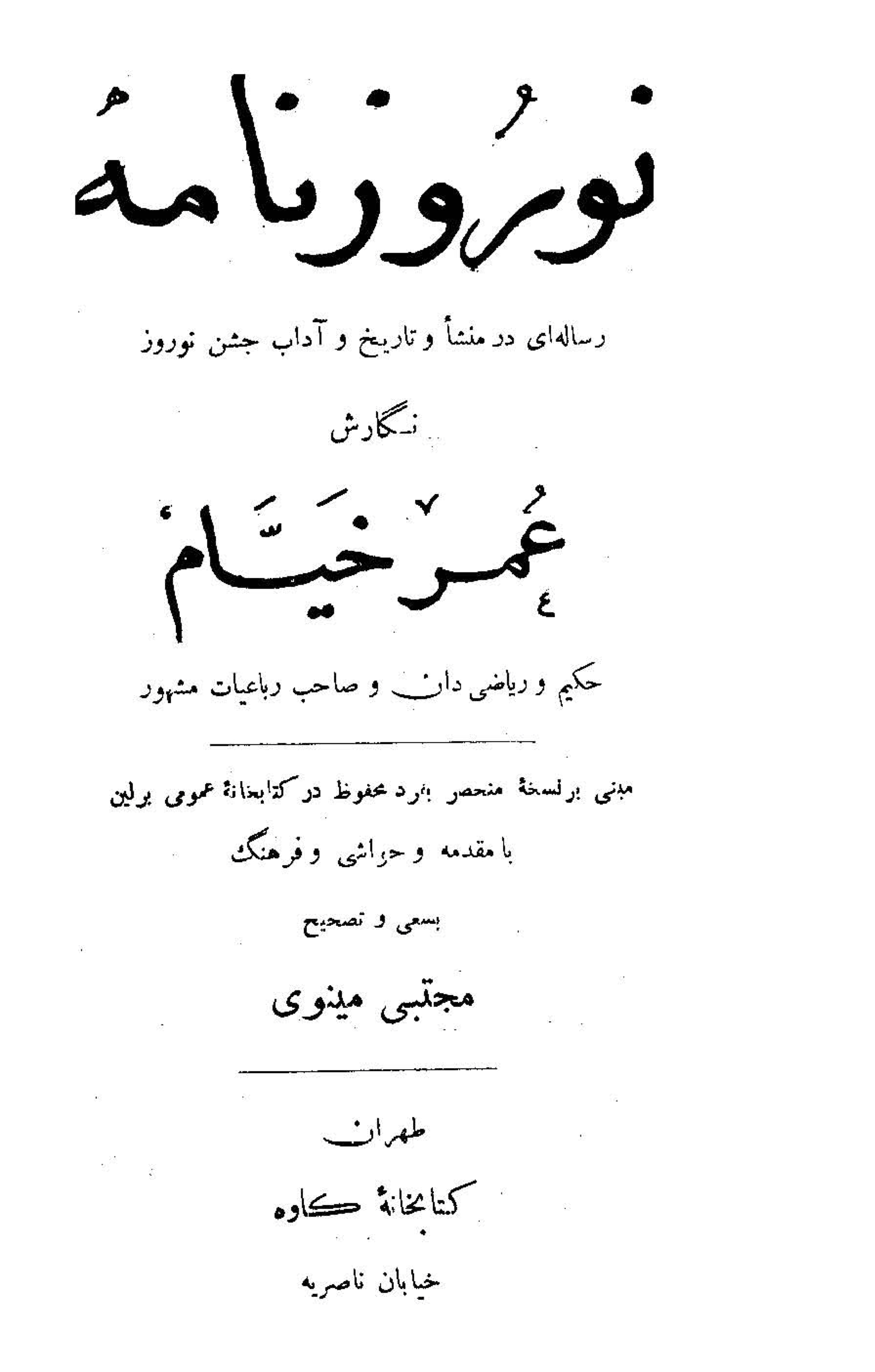
Arabic:عمر الخيام Persian:عمر خیام Kurdish: عومەر خەییام Omar Khayyám was a Persian polymath, mathematician, philosopher, astronomer, physician, and poet. He wrote treatises on mechanics, geography, and music. His significance as a philosopher and teacher, and his few remaining philosophical works, have not received the same attention as his scientific and poetic writings. Zamakhshari referred to him as “the philosopher of the world”. Many sources have testified that he taught for decades the philosophy of Ibn Sina in Nishapur where Khayyám was born buried and where his mausoleum remains today a masterpiece of Iranian architecture visited by many people every year. Outside Iran and Persian speaking countries, Khayyám has had impact on literature and societies through translation and works of scholars. The greatest such impact among several others was in English-speaking countries; the English scholar Thomas Hyde (1636–1703) was the first non-Persian to study him. The most influential of all was Edward FitzGerald (1809–83), who made Khayyám the most famous poet of the East in the West through his celebrated translation and adaptations of Khayyám's rather small number of quatrains (rubaiyaas) in Rubáiyát of Omar Khayyám.'
Books

Omar Khayyam Poems
A Modern Translation
2021

Wine of the Mystic
1994

نوروزنامه
1380

The Rubaiyat of Omar Khayyam
1120

Omar Khayyam
Poet, Rebel, Astronomer
2007

The Rubáiyát of Omar Khayyám and Other Writings
1964

Strategies of Prophet Muhammad
2013

The Sufistic Quatrains of Omar Khayyam
2012

Interpretation of Dreams
2013

The Rubaiyat of Omar Khayyam and Euphranor and Salaman and Absal
1990

Poems of the Orient
2020

The Rose Garden of Omar Khayyam
1910
ترانههای خیام
1934